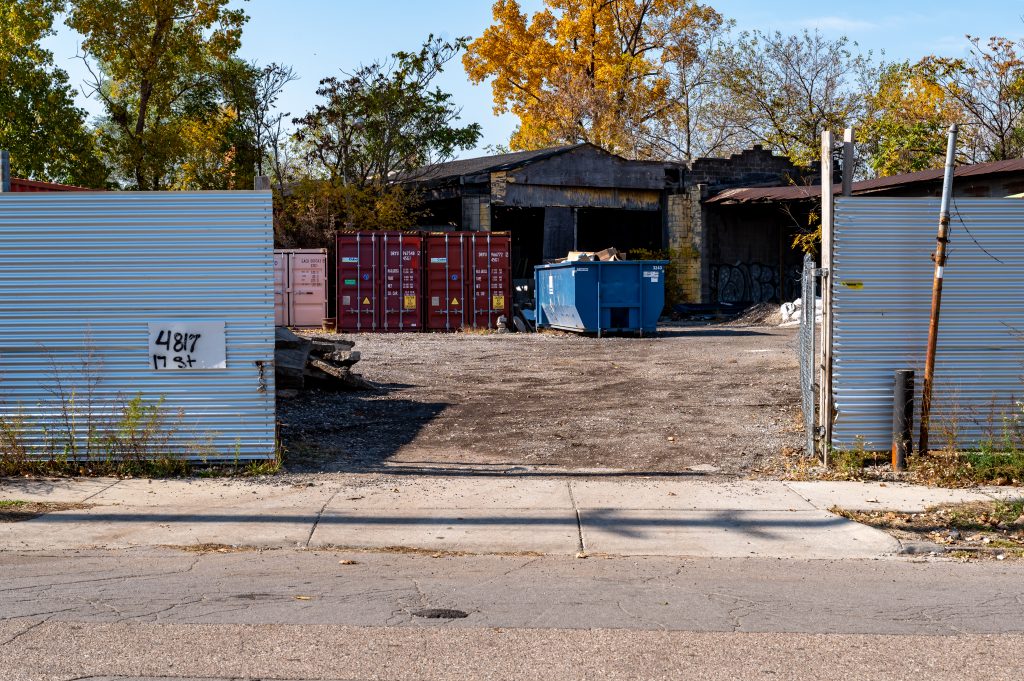Core City developer frustrated by city’s plans to demolish building he hopes to renovate
Quonset hut developer Philip Kafka is one of at least three local building owners disappointed to find their properties on the city’s demolition list.

The property at 4817 17th St. in Detroit's Core City neighborhood is one of several properties expected to be demolished by the city, despite future renovation plans laid out by property owners.
There are a limited number of structures that remain in Detroit’s Core City neighborhood — bound by Grand River Avenue, Martin Luther King Jr Boulevard and I-96 on the city’s west side. Soon there will be even less, according to the city.
The City of Detroit is planning to demolish dozens of blighted buildings throughout the city, including at least three buildings in Core City that owners say they are actively working towards renovating.
Philip Kafka owns one of the buildings on the list. You might know him for his “True North” development, a set of steel Quonset huts in Core City. As the president of Prince Concepts, a development company based in Detroit, Kafka has constructed 30 apartments and renovated 100,000 square feet of previously abandoned industrial property.
From a cell phone while visiting Zurich, Switzerland, he told WDET’s Laura Herberg that over the past seven years he’s renovated six buildings that would have been on the demolition list.
“I’m just completing my seventh building right now, and 4817 17th St. is the last building that I haven’t renovated yet,” said Kafka. “It was a former railroad yard, where trains would come off of a spur off the railroad line and be repaired. Parts of the building date back to like the late 19th century. There’s an old brick structure which feels like Berlin. It’s an amazing building.”
Listen: Laura Herberg’s full interview with Core City developer Philip Kafka about the proposed demolition of blighted properties in the neighborhood
Kafka said his company is currently using the building as a storage yard for construction equipment. While plans for the building are still in the conceptual stage, Kafka said renovation is expected to begin as early as next summer, with plans to transform the space into a music-centric “cultural center.”
“In terms of representing what Detroit was, and what the joy can be, it’s a very interesting building architecturally,” he said. “I wanted to touch it last because it has the most cultural potential.”
However, the city sees the property and others like it differently, he said, adding that most real estate developers and city officials are unable to look past the blight of a structure to see its possible potential.
“I’m a small-scale developer who’s doing made-by-hand projects where I really try to consider my surrounding environment — not only the physical environment, but also the cultural and the social environment — who is trying to create capital and culture at the same time, simultaneously,” he said. “It really bothers me that the City can’t take into consideration all of the productive, good, sensitive and celebrated work that I’ve done so far.”
The City of Detroit did not respond to WDET’s request for comment.
Trusted, accurate, up-to-date.
WDET strives to make our journalism accessible to everyone. As a public media institution, we maintain our journalistic integrity through independent support from readers like you. If you value WDET as your source of news, music and conversation, please make a gift today.
